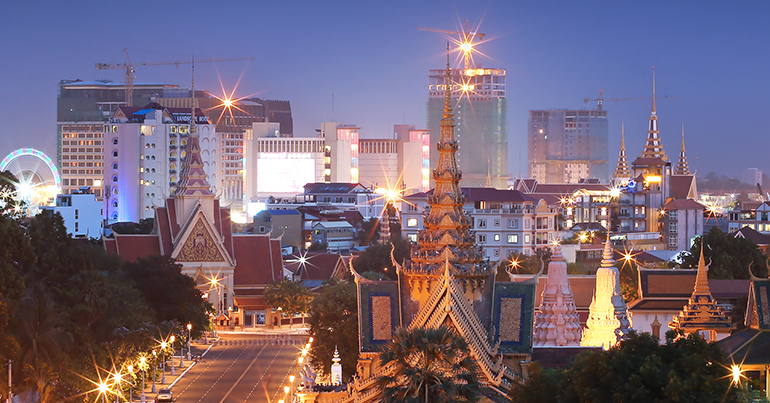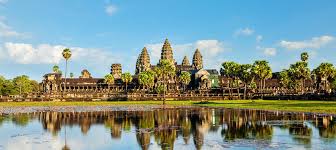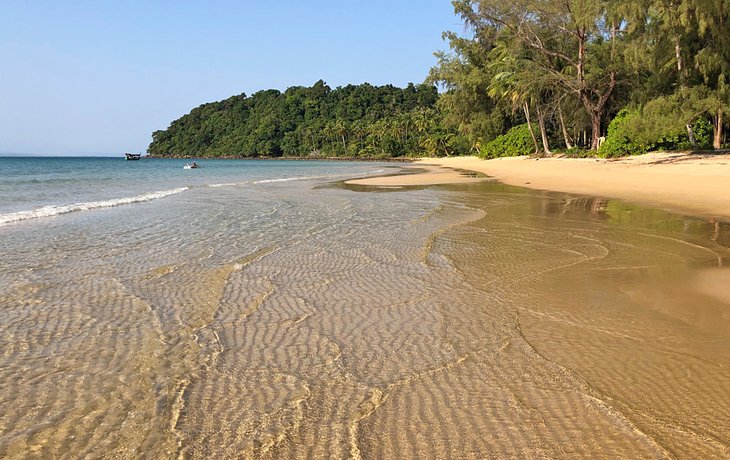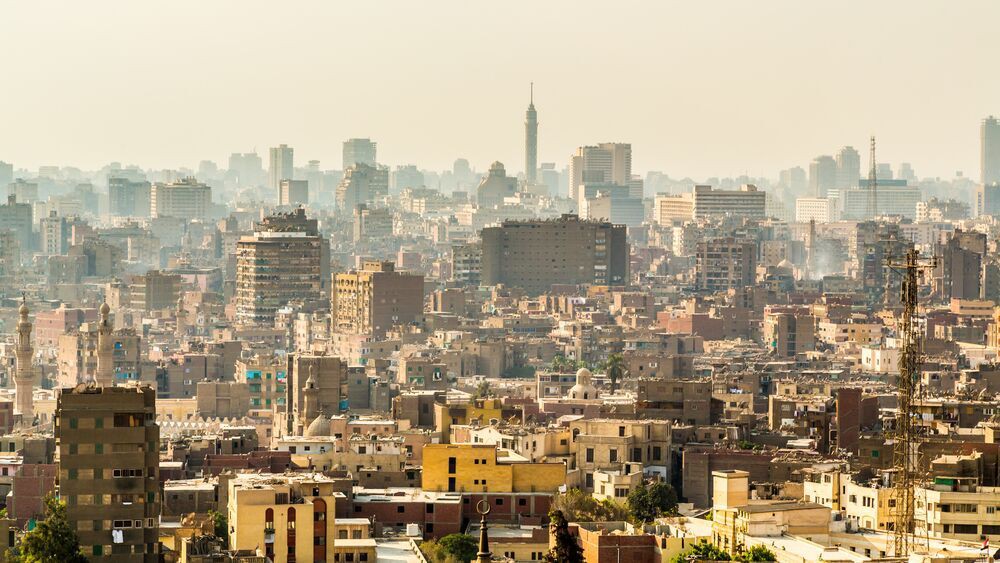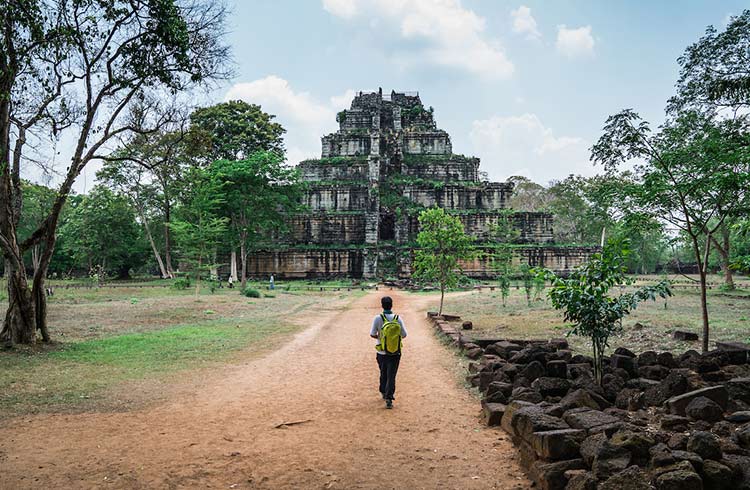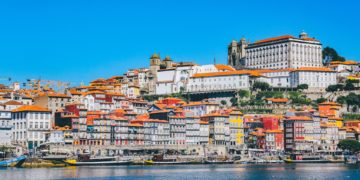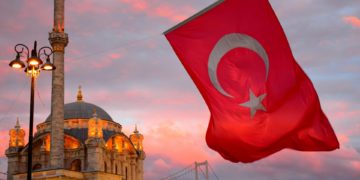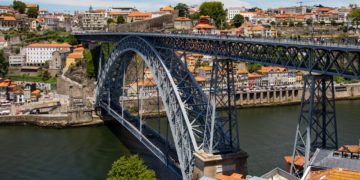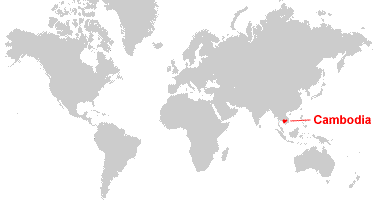
Key Facts:
Climate – tropical; rainy, monsoon season (May to November); dry season (December to April); little seasonal temperature variation
Population – 15,288,489
GDP (Per Capita) (2019) – $1,614
Official language – Khmer
Major Religions – Buddhism (97.9%), Islam (1.1%), Christianity (0.5%), Others (0.6%)
Ethnic Groups – Khmer (97%), Chams (2.4%), Chinese (0.2%)
Government – parliamentary constitutional monarchy
Currency – Riel (KHR)
Taxes – A resident employee is subject to tax on salary (TOS) on worldwide sources of income, irrespective of the place of payment; non-residents are taxed only on Cambodia-source income.
The TOS is imposed on salaries received as compensation for employment activities in Cambodia. The term “salary” is defined broadly to include wages, remuneration, bonuses, overtime, compensation and fringe benefits. Fringe benefits (in cash or in kind) include the private use of a motor vehicle, the provision of meals and/or accommodations, pension fund contributions that are more than 10% of salary, etc.
Progressive rates ranging from 0% to 20% apply to residents earning employment income. Nonresidents are subject to a flat rate of 20%. The tax rate on fringe benefits is 20%.
Residency by Investment:
Cambodia does not offer permanent residency as its ordinary visa can be extended indefinitely. As a result, foreigners who wish to stay in Cambodia for a long period may either obtain and extend their business or ordinary visas, or apply for Cambodian citizenship.
Citizenship by Investment:
Cambodian citizenship by investment program was introduced in 1996 when the National Assembly of the Kingdom of Cambodia adopted Law on Nationality. The new law made it possible for foreign investors to apply for Cambodian citizenship based on eligible investment in the amount of $311,000 or non-refundable donation in the amount of $249,000. Other requirements that are in place for normal naturalization process (like 7 years of residency requirement and knowledge of Khmer language) are waived for investors. The above-mentioned law reads as follows:
Article 10:
For any foreigner who had received a letter of authorization for investment from the Cambodian Development Council (CDC) and who had implemented concretely actual project costing an initial capital of from 1,250,000,000 riels and up, the period of residence as stated in the sub-para 3 of article 8 of this law shall be exempted.
Article 11:
For any foreigner who has no letter of authorization for investment from the Cambodian Development Council (CDC), but who had received authorization for investment legally from the Royal Government and who had spent initial capital of from 1,250,000,000 riels and up, the period of residence as stated in the sub-para 3 of article 8 of this law shall be exempted.
Article 12:
Any foreigner who has made a donation in cash, to the national budget of from 1,000,000,000 riels or more, for the interest of restoration and building of economy of the Kingdom of Cambodia, such foreigner may file an application for Khmer nationality, in the event he/she has fulfilled the conditions as stated in the sub-paragraphs 1, 2, 5 and 6 of article 8 of this law.
Why it makes sense?
- Privacy, diversification, and asset protection. Investor and his family members can choose a new Khmer name and transfer part of the wealth into the new name). The increasing lack of privacy in many nations is more of a reason than ever to have part of your wealth discretely held through a second citizenship. You can use your new Cambodian documents for banking.
- You will not be fully dependent on your first citizenship and passport. In case of political unrest or war you will be able to travel and to reside in another country with your new documents
- As a Cambodian citizen, you will be able to take advantage of local benefits that are not available to foreigners. You will be able to live and work in Cambodia visa-free at any time and for as long as you want. You will be able to own landed property in your own name (foreigners can only lease land and property for 50 years). And the last but least, you will be able to apply for concessions and licenses from the Cambodian government that are only available to nationals.
- Travel Benefits. Among other countries, as a Cambodian citizen, you can travel without visa to Singapore, Malaysia, Indonesia, South Korea, India, and Thailand.
- Other Reasons to Invest
- Cambodia is a part of the ASEAN Economic Community, a region with free movement of goods, services, investment, skilled labor, and freer flow of capital. ASEAN membership offers regional trade benefits.
- Easy repatriation of profits
- Low-cost labor force
- Untapped natural resources and fertile land
- Underpenetrated, growing domestic consumer market
- Well capitalized, conservative banking system
- Political Stability

